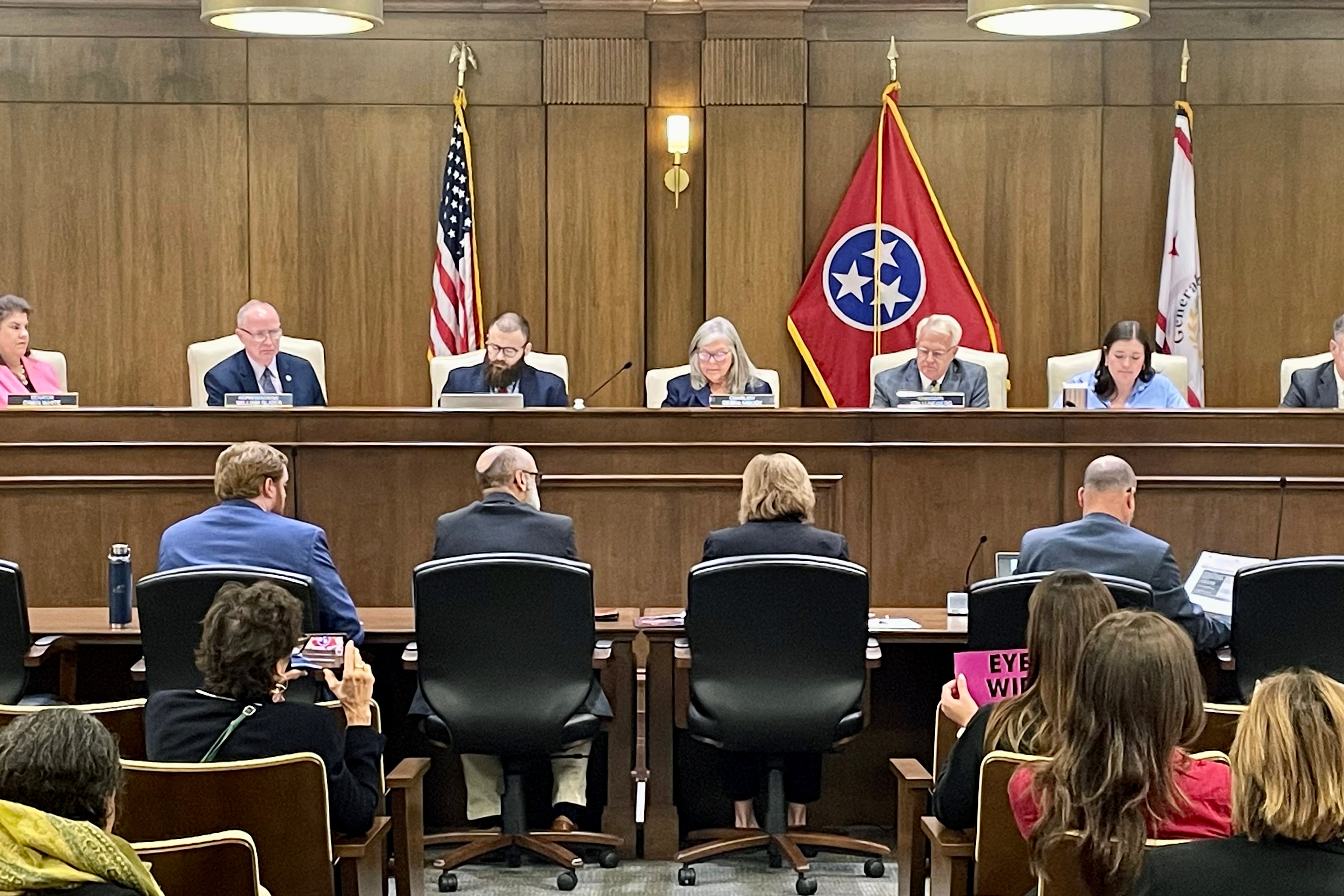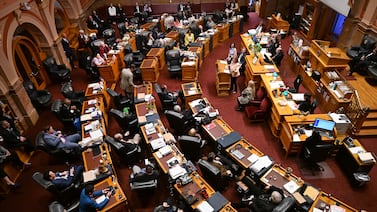Sign up for Chalkbeat Tennessee’s free daily newsletter to keep up with statewide education policy and Memphis-Shelby County Schools.
Senate members of a joint legislative panel that looked into whether Tennessee should reject more than $1 billion in federal education funding released their own report Tuesday, citing disagreements with House colleagues.
The 12-page report said Tennessee could not make new investments toward other needs if it opts out of federal education funding and tries to fill the gap with state revenues.
The report also noted numerous other avenues for Tennessee to pursue to resolve conflicts between federal and state interests, and it brought up uncertainties created by taking the unprecedented step of saying no to U.S. money.
“Many federal requirements could still apply to Tennessee schools even if the state rejected federal K-12 dollars, creating questions that would likely be resolved in court,” the report said.
In essence, the senators’ report laid out why no state has ever taken the step of rejecting federal funding for its students and schools, even though several such as Oklahoma and Utah have considered it.
The U.S. contribution, for which Tennessee citizens pay taxes, makes up about a tenth of the state’s budget for education — about the same as with other states. Most federal money supports low-income students, English language learners, and students with disabilities.
Sen. Jon Lundberg, the Bristol Republican who co-chaired the 10-member panel, called the report “preliminary” as he and four other senators submitted the document to Lt. Gov. Randy McNally and House Speaker Cameron Sexton.
“At this time, the House and Senate have not agreed to mutual recommendations,” they wrote in an accompanying letter.
Rep. Debra Moody, the Covington Republican who co-chaired the panel with Lundberg, did not immediately respond when asked whether the House members would submit their own report or comment on any disagreements.
But Sexton, who floated the idea nearly a year ago for Tennessee to look into the possibilities, said through an aide that a separate House report is coming.
“The House agreed with [the] Senate’s options for consideration. However, the Senate would not agree with the House’s actionable recommendations moving forward,” said a statement from Sexton’s office.
The Crossville Republican, who is a likely candidate for governor in 2026, had complained about testing requirements and other federal strings attached to acceptance of federal dollars, but has yet to provide a list of the other strings he finds objectionable.
Education advocates have suggested that objections from Sexton and the legislature’s GOP supermajority are related to current “culture wars” about curriculum and the rights of transgender students to use school bathrooms or join sports teams consistent with their gender identity, which may not correspond with their sex assigned at birth.
A year ago, Sexton said Tennessee could tap into $3.2 billion in new recurring state revenues, which would more than cover any lost federal funds for education. But those numbers were based on budget information at that time. State revenues have since flattened.
“Tennessee likely has room in the budget to reject and replace recurring federal funding in K-12 education, but at the expense of other potential investments,” the report said.
The senators also noted that the amount of federal money that Tennessee receives totals more than any of the recurring increases for education over the last decade. It’s also larger than the budgets of all but just a few state agencies, such as TennCare, transportation, education, and corrections.
Lundberg released the report just as the General Assembly reconvened its 2024 session, meeting a Jan. 9 deadline set by Sexton and McNally when they appointed the joint panel in September.
RELATED: Key education issues to watch as Tennessee lawmakers return
He told Chalkbeat later Tuesday that he stands by the report and refused to make changes requested by Sexton’s office.
“We determined it was best to release a Senate report that was solid, based on the testimony we heard and the information we were given,” said Lundberg, who declined to detail the points of contention.
Lundberg, who also chairs the Senate Education Committee, praised the work of the joint legislative panel for clearly identifying the state’s funding sources for education and their related mandates.
“Frankly there are fewer federal strings than I anticipated,” he said.
During four days of testimony in November, the panel heard mostly fact-finding presentations from established nonpartisan researchers, school district leaders, and state officials.
On the fifth day, at the request of House members, the group also heard from representatives of two conservative groups who urged the state to pursue forgoing federal funding. None of the Senate members were present for that final testimony. They said scheduling conflicts prevented them from attending.
The legislative panel declined to hear from Tennessee parents or advocacy groups about how federally funded education programs are run or affect their children.
Last week, several legislative leaders told Chalkbeat they did not expect any new legislation this year out of last year’s hearings.
Below, you can read the full Senate report, with the accompanying letter.
This story has been updated from a previous version.
Marta Aldrich is a senior correspondent and covers the statehouse for Chalkbeat Tennessee. Contact her at maldrich@chalkbeat.org







